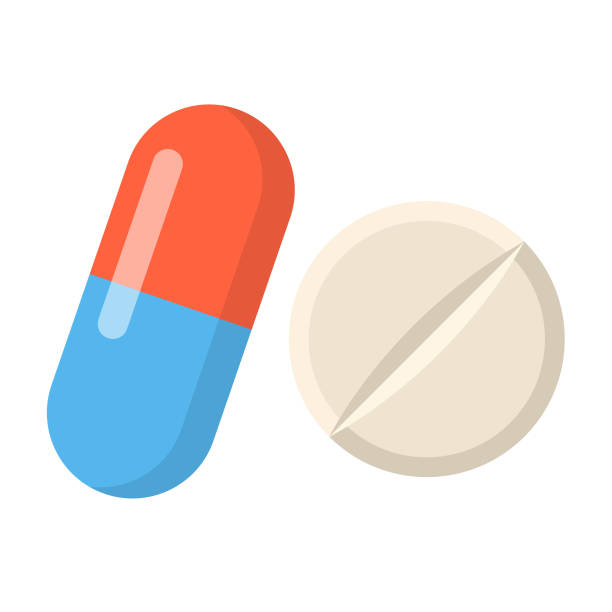Indications
This medication is used to prevent or treat low blood calcium levels in people who do not get enough calcium from their diets. To fulfill the calcium deficiency or meet extra need of calcium, it may be used in conditions like osteoporosis osteomalacia, rickets, latent tetany, postmenopausal osteoporosis, senile osteoporosis, juvenile osteoporosis, drug (phenytoin, phenobarbital, or prednisone) induced osteoporosis, pregnancy and lactation, premenstrual syndrome (PMS), hypoparathyroidism and hip joint plastic surgery.
Calcium Orotate acts against a number of inflammatory diseases like arthritis, psoriasis, lupus, spondylitis, various cardiovascular ailments, encephalitis, retinitis, phlebitis, colitis, and multiple sclerosis. Calcium Orotate helps in controlling weight by suppressing the habit of frequent appetite of chronic overeaters. It is also beneficial in reducing the effects of mood swings and is proved to be quite effective in cognitive enhancement. Calcium Orotate protects the heart by enhancing the efficiency of cardiac muscles. Recent studies on calcium orotate indicate its potential to minimize the risk of colon cancer.
Pharmacology
This contains Calcium Orotate, a calcium supplement with a functional amino acid chelating ligand- orotic acid. Orotic acid assists the transport of calcium through cellular membrane structures, thus facilitating the intracellular uptake of calcium, particularly in bone. Calcium Orotate also helps in the maintenance of healthy cartilage. Furthermore, Orotate is involved in the synthesis of DNA (deoxyribonucleic acid) and RNA (ribonucleic acid) of the various calcium supplements on the market, Calcium Orotate gets high marks because of the compound's ability to penetrate complex cell membranes so that it can be metabolized in cartilage.
Dosage And Administration
Calcium Orotate 400 mg: As an addition to the daily diet, 2-3 tablets are usually recommended with meal or as directed by a physician.
Calcium Orotate 740 mg: As an addition to the daily diet, 1-2 tablets are usually recommended with meal or as directed by a physician.
Interaction
Calcium can decrease absorption of the following drugs when taken together: biphosphonates (e.g., alendronate), quinolone antibiotics (e.g., ciprofloxacin, levofloxacin), and tetracycline antibiotics (e.g., doxycycline, minocycline), levothyroxine, phenytoin (an anticonvulsant), and tiludronate disodium (to treat Paget's disease). Thiazide-type diuretics can interact with Calcium supplements, increasing the risks of hypercalcemia and hypercalciuria. Both aluminum- and magnesium-containing antacids increase urinary calcium excretion. Mineral oil and stimulant laxatives decrease calcium absorption. Glucocorticoids, such as prednisone, can cause calcium depletion and eventually osteoporosis when they are used for months. Oral contraceptives as well as estrogen compounds reduce calcium. Anti-inflammatories such as NSAIDs, Aspirin, Ibuprofen deplete calcium. Corticosteroids deplete calcium.
Contraindications
Calcium Orotate is contraindicated in conditions like incomplete or infrequent bowel movements, kidney stone, kidney disease, increased activity of the parathyroid gland, high amount of Calcium in urine, high amount of Calcium in the blood, extreme loss of body water.
Side Effects
Bloating and swelling in the abdomen are common side effects of Calcium Orotate. Loss of appetite, upset stomach, constipation, nausea, vomiting, unusual weight loss, increased thirst/urination, weakness, unusual tiredness, formation of kidney stones may occur infrequently.
Pregnancy And Lactation
Women who are pregnant and breast-feeding need more calcium. Pregnancy related high blood pressure is a common and serious risk for women and their babies, and taking supplemental forms of Calcium Orotate can help to reduce this risk.
Precautions And Warnings
Before taking Calcium Orotate, precaution is needed if the patient is allergic to Calcium Orotate. This drug may contain inactive ingredients, which can cause allergic reactions or other problems. Precaution is needed before using this drug in kidney disease, kidney stones, little or no stomach acid (achlorhydria), heart disease, disease of the pancreas, sarcoidosis difficulty absorbing nutrition from food (malabsorption syndrome).
Therapeutic Class
Minerals in bone formation, Specific mineral preparations
Storage Conditions
Keep out of the reach of children. Keep in a cool & dry place. Protect from light.
